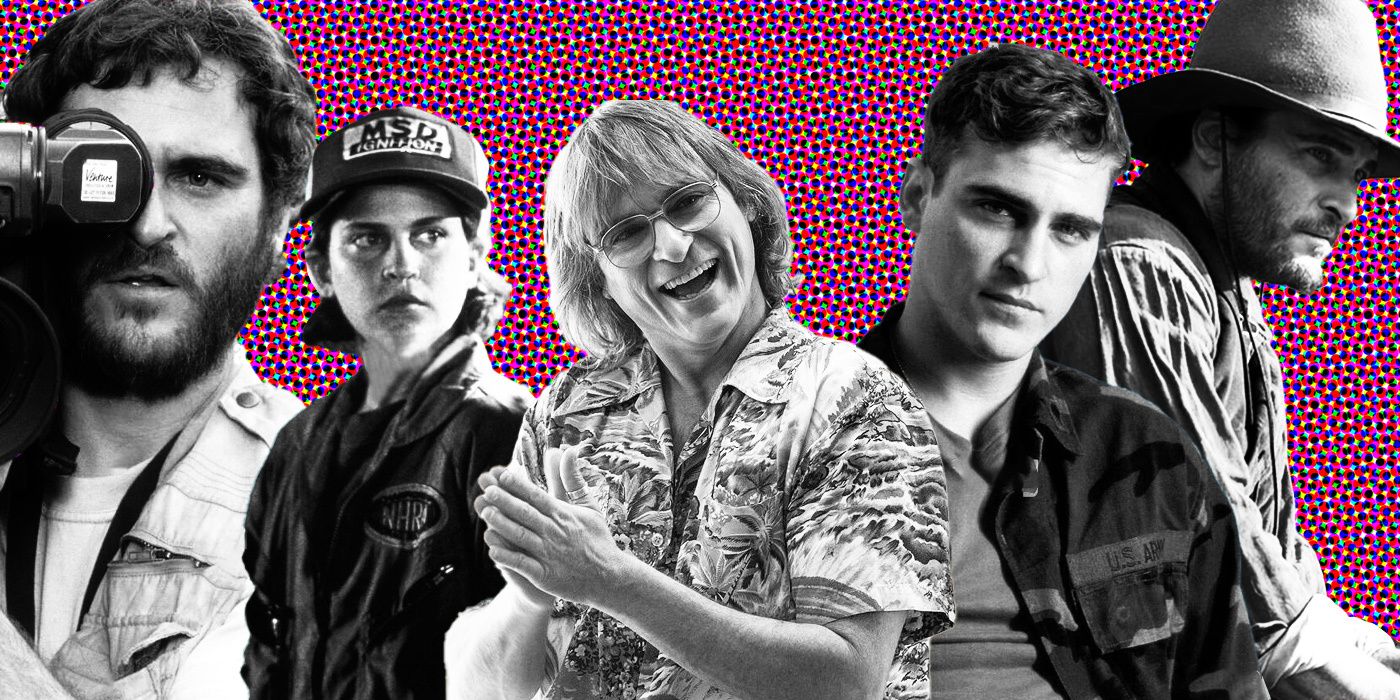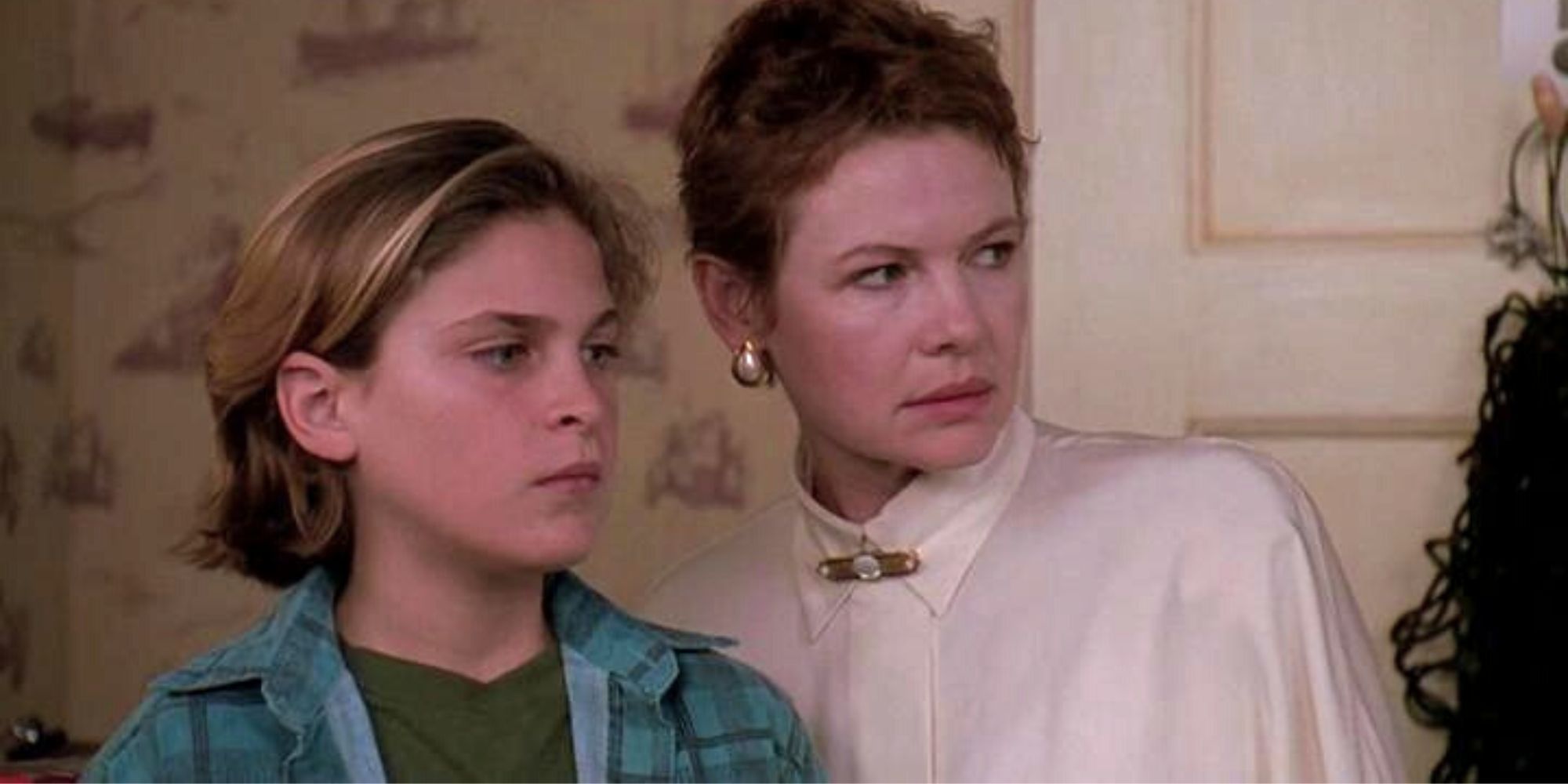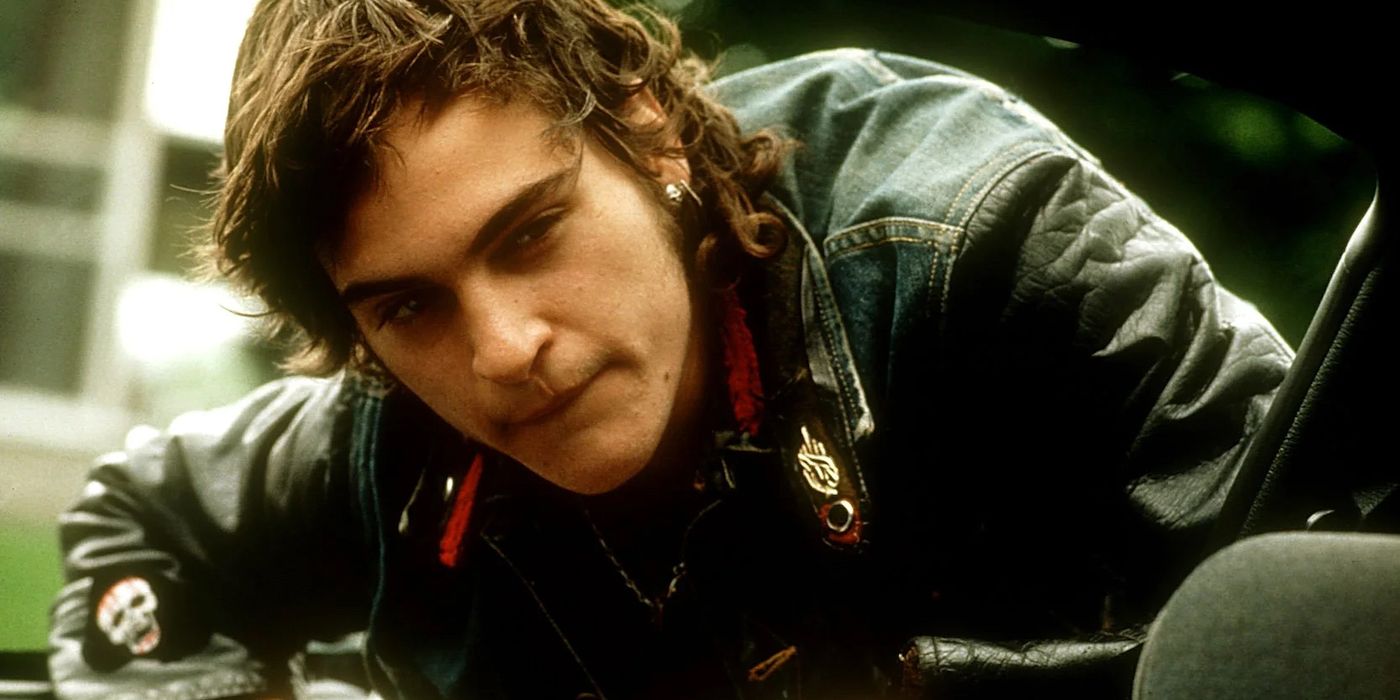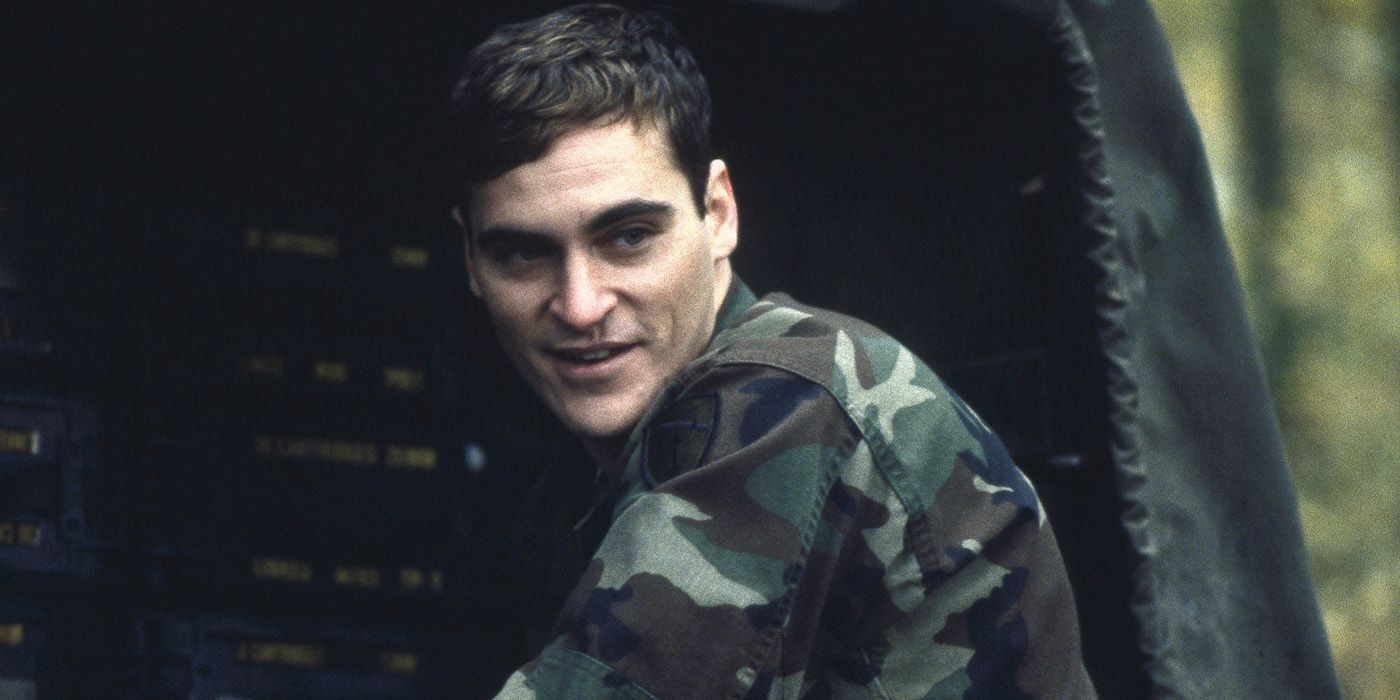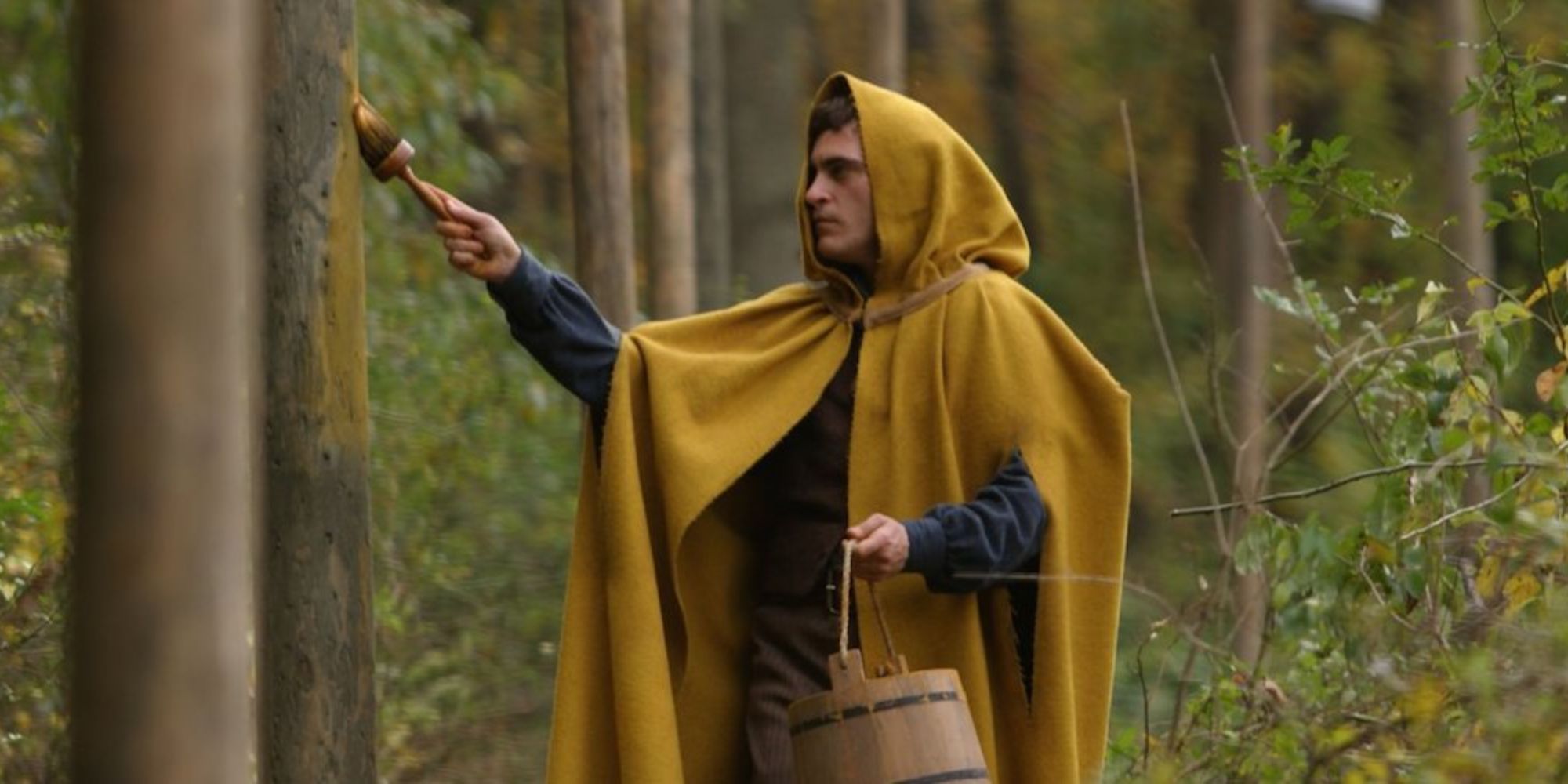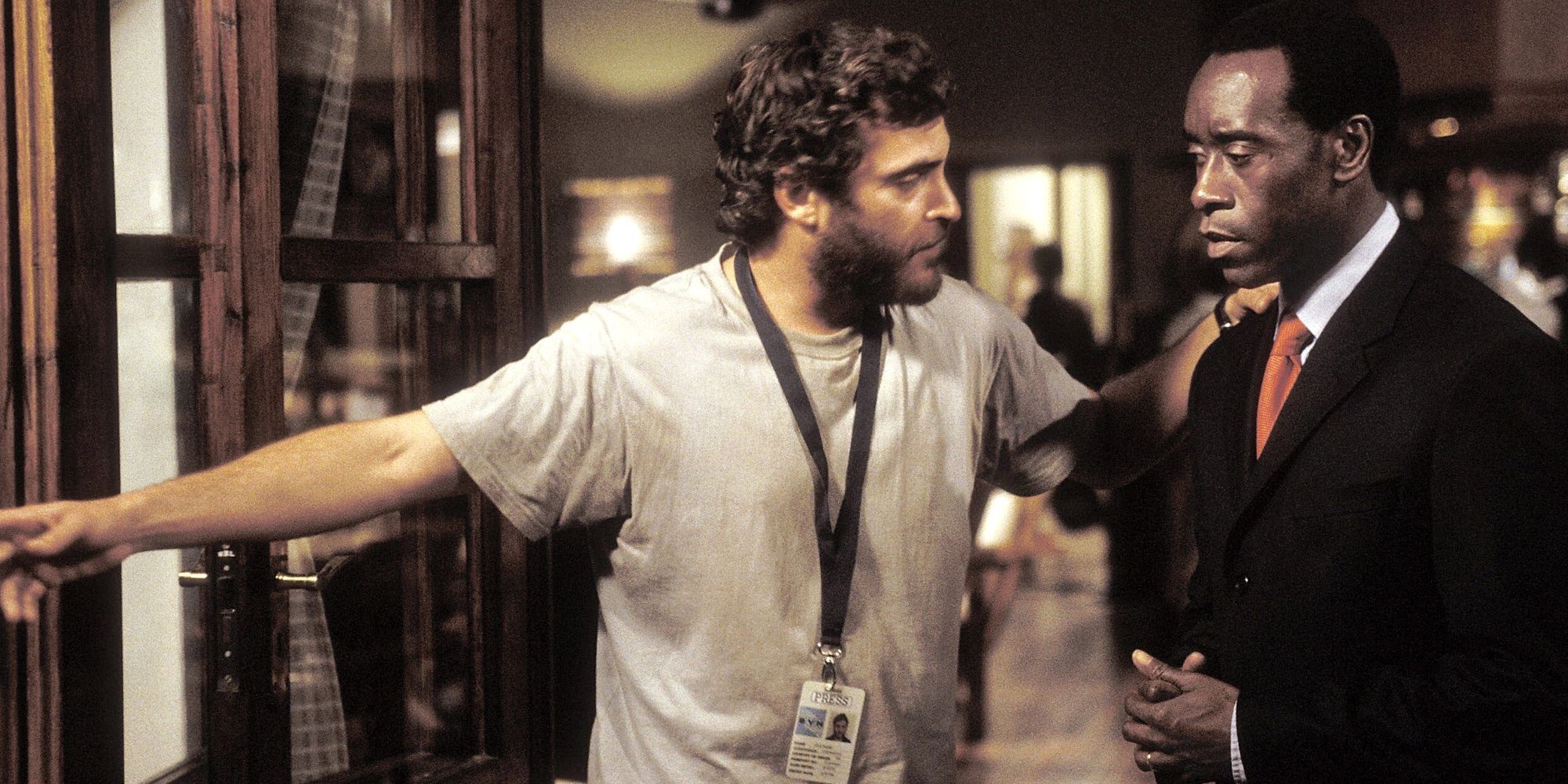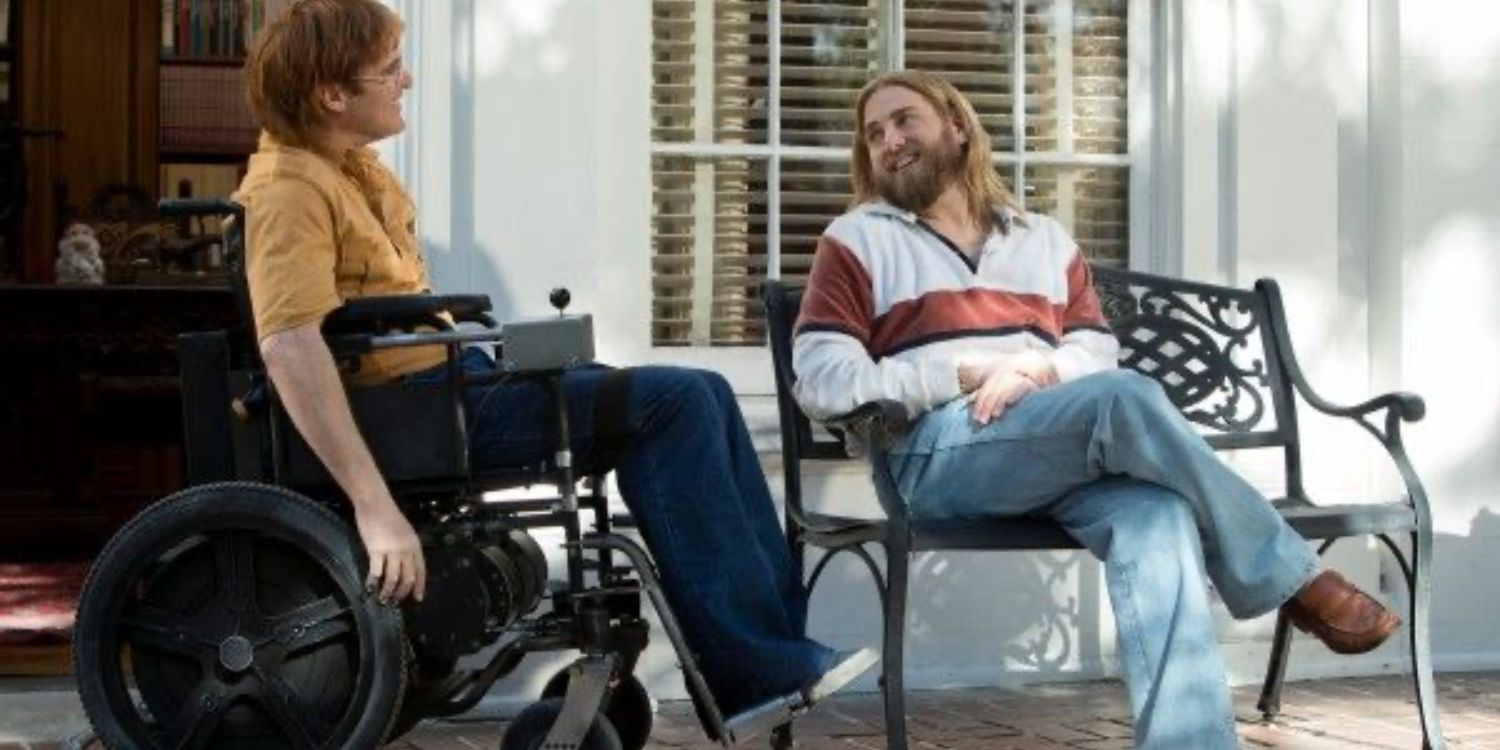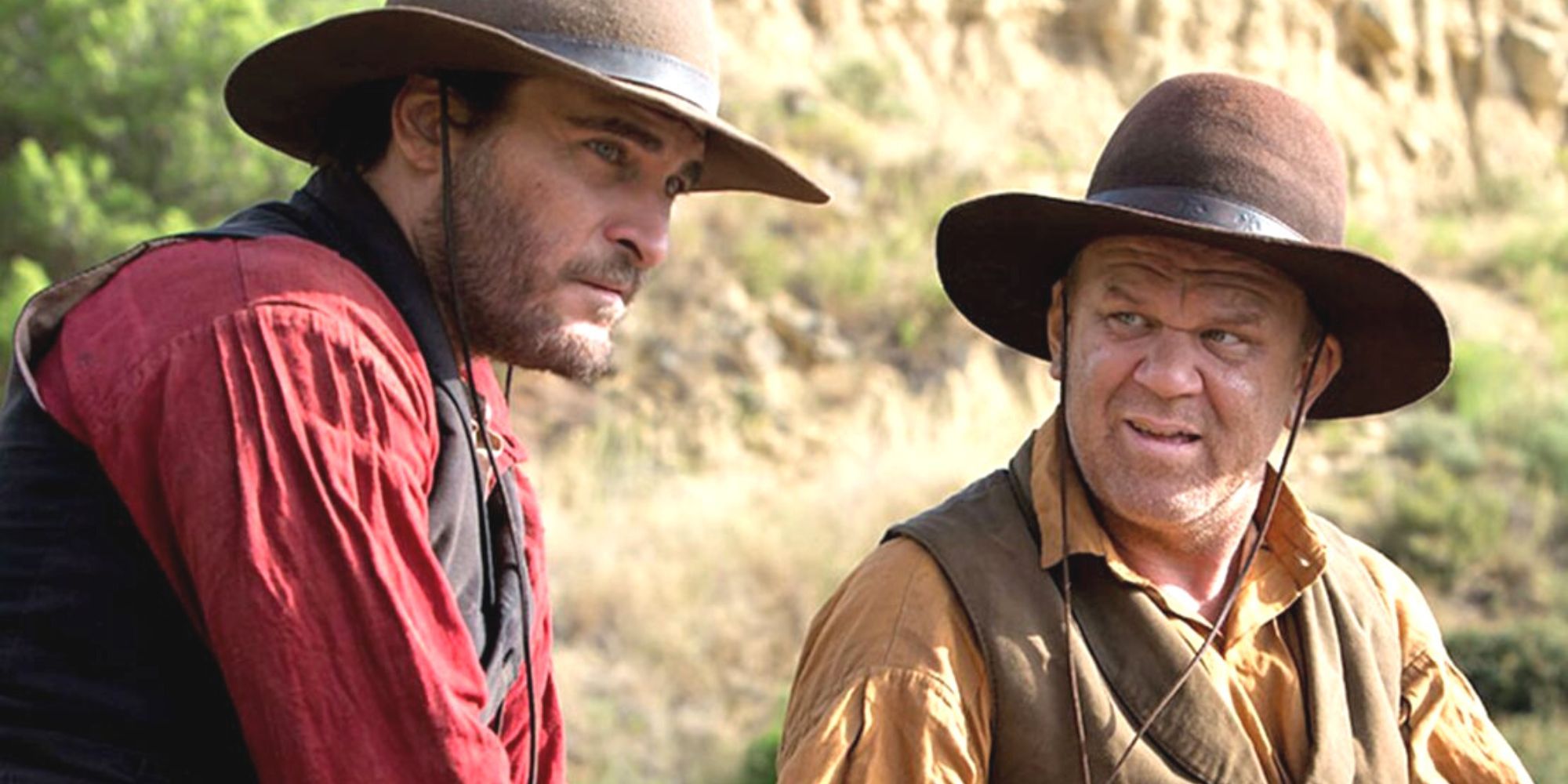It’s somewhat ironic that Joaquin Phoenix finally won an Academy Award for playing a Batman villain, because the former child star has pretty much avoided mainstream material for the majority of his career. Phoenix is one of the greatest actors of his generation, and his fascinating public persona generates more hype for each upcoming performance.
Picking the best role in Phoenix’s career would be no easy task. Walk the Line, Gladiator, Her, You Were Never Really Here, The Master, and Inherent Vice aren’t just great performances, but embody different strengths that Phoenix has. Between his meticulous preparation and a diverse range of parts, he’s managed to stay unpredictable.
In typical Phoenix fashion, he followed up his highest-grossing film ever in Joker — which also won him his first Best Actor Oscar — with films that couldn't be more different: Mike Mills’ sensitive family dramedy C'mon C'mon and Beau Is Afraid, the third feature film from horror director Ari Aster.
To highlight just how eclectic Phoenix’s filmography is, make sure to check out these seven underrated performances.
Parenthood
One of the joys of C’mon, C’mon is seeing Phoenix interact with a breakthrough child star, as it's a position he is well versed in. Phoenix gave one of his earliest performances in Ron Howard’s classic family dramedy Parenthood as the young son of Dianne Wiest’s Helen Buckman. Parenthood is one of Howard’s very best, as his sincere earnestness helps elevate storylines that would’ve otherwise felt cliche, particularly Garry’s withdrawal from social circles that stems from his father’s absence. Even at an adolescent age, Phoenix resists overplaying the emotional moments, and as a result his tearful phone conversation with his absent dad is completely devastating. He also showed an award aptitude for comedy, and his interactions with his sister Julia’s (Martha Plimpton) boyfriend Tod (Keanu Reeves) are a showcase for both emerging talents.
To Die For
To Die For was the breakout vehicle of Nicole Kidman’s career thanks to her incredible performance as aspiring celebrity Suzanne Stone-Maretto, and Gus Van Sant’s razor-sharp insights on obsessions with stardom feel prophetic in 2021. It still ranks among the best work both director and star have ever done, but Phoenix’s contributions are quintessential to the darkly sinister undercurrent beneath To Die For’s poppy surface. As juvenile delinquent Jimmy Emmet, Phoenix finds a wacky buffoonery within a troubled teenager capable of actual murder. Phoenix is willing to play dumb; he’s entranced by Kidman’s spell, and she only weaponizes his inherent toxic behavior.
Buffalo Soldiers
Buffalo Soldiers is a highly underrated film that suffered from the worst timing possible. After a genuinely well-received debut at the 2001 Toronto International Film Festival, the film’s release was held for nearly two years over fears that the anti-militaristic satire would be deemed insensitive following 9/11. The black comedy follows Phoenix as a bored U.S. Army Supply Specialist stationed in West Germany that enjoys drinking, smoking, and partying before a black marketeering scheme crosses his mind. Buffalo Soldiers starts off making very broad observations about the military’s ineffectiveness and the competitive environment’s radicalization tactics, but the anarchic ending leans into more disturbing territory with its anarchic absurdity. Phoenix sells this jarring tonal shift; it's the only outcome to the combustible situation.
The Village
The Village continues to be a divisive film. While some of M. Night Shyamalan’s twists end with a definitively satisfying conclusion (The Sixth Sense, Unbreakable) and others land with a notorious thud (The Lady in the Water, The Happening), The Village is harder to instantly determine, and retrospective reviews have been kinder to the more insightful points about storytelling Shyamalan was making. Of all the performances in the film, attention was mostly paid to the breakout turn by Bryce Dallas Howard as the blind hero Ivy Elizabeth Walker and Adrien Brody’s infamously lampooned role as mentally challenged Noah Percy. Phoenix’s name isn’t mentioned a whole lot, but he steps into the romantic lead role with ease. The Village is inherently melodramatic as a result of the later revelations, and Phoenix does a great job leaning into the romantic yearnings without becoming a caricature.
Hotel Rwanda
Hotel Rwanda is an incredibly important film. It tells the true story of hotel manager Paul Rusesabagina (Don Cheadle) and his wife Tatiana (Sophie Okonedo), who saved the lives of thousands of refugees during the Rwandan genocide. Phoenix has a supporting turn as Jack Daglish, a journalist and activist covering the events. It's not his story to tell, and the film handles Daglish’s shock and guilt expertly; he’s ashamed by the brutality he’s witnessing, yet he could never claim to understand the black trauma that Paul and his family feel. It's a well crafted supporting turn that doesn’t seek to be a “scene-stealer.”
Don't Worry, He Won't Get Far On Foot
Gus Van Sant’s biographical film Don’t Worry, He Won’t Get Far On Foot isn’t perfect, but it contains some of Phoenix’s strongest work and features one of his greatest physical transformations. He stars as eccentric cartoonist John Callahan, who is left completely paralyzed following a drunk driving incident. Callahan is obscene and in complete denial about his alcoholism, and despite the progression he makes in accepting responsibility, he’s not always a likeable character. Phoenix gives a reason to empathize with Callahan; he’s put through gruelling physical training and rehabilitation, and seeks to make amends with everyone in his life who was affected by his drinking. It’s not an easy role to pull off, but Van Sant’s jarring tonal shifts feel less awkward thanks to Callahan’s fragile emotional state, which Phoenix captures beautifully.
The Sisters Brothers
The Sisters Brothers was a victim of one of the weirdest marketing campaigns of all-time. Trailers promised an action packed spectacle about remorseless gunslingers, and what they got was a realistic buddy adventure featuring four remarkably sensitive depictions of masculinity. The Sisters Brothers examines the loneliness of the west, and the struggles that each man faces as they reenter regular society after months of isolating travel. Eli (John C. Reilly) and his brother Charlie (Phoenix) team up with the detective John Morris (Jake Gyllenhaal) and inventor Hermann Warm (Riz Ahmed) to create their own utopia, and their idealistic pursuits result in tragedy. Phoenix takes the archetype of a rowdy quick draw and imbues it with the fragility of a scared child.

